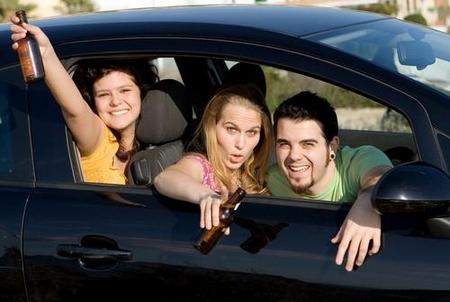Arlington Heights, IL 60005
Underage Drinking and Driving: Illinois Zero Tolerance Law
 As the school year draws to a close, young people across the country look forward to spring and summer seasons. Graduation parties, holiday picnics, and simply spending time with friends offer many teens a well-deserved break from the stress of school. Many teens, however, will choose to celebrate with alcohol, which can not only be dangerous, but is also illegal in Illinois. Some, after drinking, will get behind the wheel of a car, putting them at increased risk of injury and prosecution under the state’s Zero Tolerance Law.
As the school year draws to a close, young people across the country look forward to spring and summer seasons. Graduation parties, holiday picnics, and simply spending time with friends offer many teens a well-deserved break from the stress of school. Many teens, however, will choose to celebrate with alcohol, which can not only be dangerous, but is also illegal in Illinois. Some, after drinking, will get behind the wheel of a car, putting them at increased risk of injury and prosecution under the state’s Zero Tolerance Law.
Zero Tolerance and DUI
The Illinois Zero Tolerance Law makes it illegal for an individual under the age 21 to operate a motor vehicle with any trace of alcohol in his or her system. A person caught driving with a blood-alcohol content (BAC) of greater than 0.00 percent may be charged under the state's Zero Tolerance provisions. A first offense will result in a three month suspension of driving privileges, and a subsequent offense carries a one-year suspension. Refusal to submit to BAC testing can result in the penalties and suspensions being doubled.
For any driver, regardless of age, operating a motor vehicle with a BAC of 0.08 percent or higher is subject to prosecution for driving under the influence (DUI). Penalties for first-time offenders over 21 generally include fines and a mandatory suspension of driving privileges. The law provides that the most serious cases are punishable by prison sentences or community service, as well.
Underage drivers may face charges for DUI, however, without exceeding a 0.08 percent BAC. With other evidence of impairment, a BAC of 0.05 percent is sufficient for underage DUI prosecution. Additionally, the penalties are more severe for intoxicated drivers under 21. The first conviction for an underage DUI will result in a minimum 2-year revocation of driving privileges, and a second conviction results in at least a 5-year license revocation.
First-Time Offender Options
Those who are convicted of DUI for the first time, including individuals under 21, may have avenues available to them that could lessen the impact of the situation. Many first-time offenders may qualify for restricted driving permits, in conjunction with the use of a breath alcohol ignition interlock device, or BAIID. Often requiring attendance and participation in alcohol remedial education courses, BAIID programs usually allow a person to continue working or attending school before the full reinstatement of his or her driving privileges is granted.
If you or your child has been charged under the Zero Tolerance law or is facing charges for DUI, contact an experienced Rolling Meadows criminal defense attorney. Our team understands the inherent challenges of such cases and is prepared to work with you to minimize the impact a conviction may cause. Call today to schedule your free consultation.












